Members
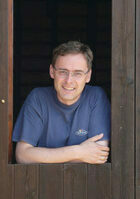 |
Holger Baitinger |
| Leibniz-Zentrum für Archäologie | |
| E-mail: holger.baitinger@leiza.de | |
| Institutional webpage | |
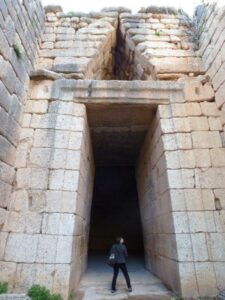 |
Judith M. Barringer |
| The University of Edinburgh | |
| Email: J.M.Barringer@ed.ac.uk | |
| Judith M. Barringer is Professor of Greek Art and Archaeology at the University of Edinburgh. Her scholarly work centers on the archaeology, art, and culture of Greece, particularly the intersection between art, myth, and religion, from the Archaic through Hellenistic periods. More specifically, I am interested in why images, particularly sculpture and vase painting, appear as they do and how they acquire meaning for ancient patrons and viewers from their physical and social contexts. The use, functioning, and logistics of sanctuaries, as well their physical composition and layout, are of special interest, as represented by her forthcoming book, Olympia: A Cultural History, Princeton University Press 2021; her co-organization of the conference Logistics of Greek Sanctuaries (proceedings forthcoming); and her article in progress on “The Workings of Treasuries in Greek Sanctuaries.” | |
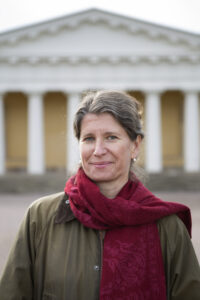 |
Gunnel Ekroth |
| Uppsala University | |
| Email: gunnel.ekroth@antiken.uu.se | |
| Gunnel Ekroth is professor of Classical Archaeology and Ancient History at Uppsala University. Her research focuses on Greek religion and particularly ritual practices, exploring aspects such as animal sacrifice, the handling and consumption of meat, altars, waste management and the use and definition of sacred space from a combination of written, iconographical and archaeological evidence, including animal bones. | |
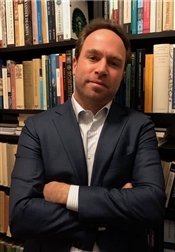 |
Floris van den Eijnde |
| Utrecht University | |
| E-mail: f.vandeneijnde@uu.nl | |
| Floris van den Eijnde is director of Ancient, Medieval and Renaissance Studies and lecturer and researcher of Ancient History at the department of History and Art History of Utrecht University. He is interested in social and cultural integration and interaction in the premodern Mediterranean world. In his research he employs recent anthropological insights with regard to social interaction and institutions (e.g. Feasting and Polis Institutions, 2018). In particular, his work has focussed on the formation and rise of the Athenian polis (1200-500 BCE) and especially the central role played by local sanctuaries (The Athenians, forthcoming CUP).
As of 2019, Floris van den Eijnde leads the UU research group Sacrality and the Greek Polis (SAGP). He is a founding member of Hieron and co-director of the Dutch national (OIKOS) research group Cultural Interactions in the Ancient World (CIAW) and editor-in-chief of the academic book series Cultural Interactions in the Mediterranean (CIM, Brill, Leiden). For the latter series he co-edited the volumes Empires of the Sea (2019) and Late Antique Responses to the Arab Conquest (2020). |
|
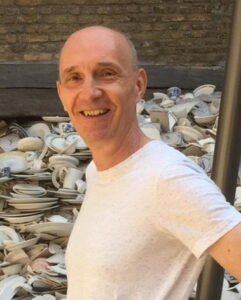 |
Michael Kerschner |
|
Austrian Archaeological Institute (Vienna)
|
|
| Email: michael.kerschner@oeaw.ac.at | |
| I am research associate at the Austrian Archaeological Institute of the Austrian Academy of Sciences in Vienna (since 2002) and responsible for the research focus “Cult and Sanctuary”. Parallel to this position, I am Byvanck Fellow in Classical Archaeology and Art at the Faculty of Archaeology of Leiden University (since 2020).
My research focusses on Greek sanctuaries, on the development of early Greek settlements, and on culture and identity of Ionia and Lydia. I have carried out field projects in Turkey (Ephesos, Miletos, Teos in Ionia) and Greece (Lousoi in Arcadia) and studied the archaeological evidence of the Artemision of Ephesos, the sanctuary of Meter at Ephesos, the sanctuary of Artemis Kithone at Miletos and that of Artemis Hemera at Lousoi. Furthermore, I have done archaeometric analyses on the ceramic production of the eastern Aegean, Euboea and the northern Peloponnese in collaboration with Hans Mommsen (Bonn) and Pamela Fragnoli (Vienna). I studied Classical Archaeology, Art History and Ancient History at the universities of Salzburg (MA 1990) and Bochum (PhD 1995). In 2009 I did my habilitation at Salzburg University. I have been teaching at the universities of Münster, Vienna, Salzburg and Leiden. |
|
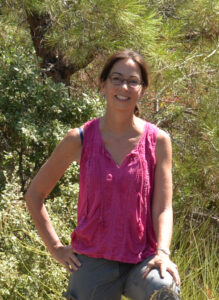 |
Christina Williamson |
| University of Groningen | |
| Email: c.g.williamson@rug.nl | |
| Christina Williamson is Assistant Professor of Ancient History at the University of Groningen. Her research interests concern spatial and network approaches towards understanding religious influences on urbanizing processes, with a focus on Hellenistic Asia Minor. Her project ‘Deep Mapping Festival Hubs’ is part of the larger project which she co-directs, ‘Connecting the Greeks. Multi-scalar festival networks in the Hellenistic world’, awarded an Open Competition grant by the Dutch Council for Scientific Research (NWO) (2019-2023). As research fellow she is associated with the project ‘Religion and Urbanity. Reciprocal Formations’, funded by the German Scientific Research Council, at the Max-Weber-Kolleg at the University of Erfurt. She is also affiliated with the fieldwork program at Pergamon of the German Archaeological Institute (DAI) in Istanbul. In 2014-2015 she held a postdoctoral position at Brown University for her project ‘Commanding Views. Monumental landscapes and the territorial formation of Pergamon, 3rd to 2nd centuries BC’, funded by a Rubicon grant from NWO.
Christina Williamson is co-coordinator of the research group Cultural Interactions in the Ancient World (CIAW), under OIKOS, the Dutch National Research School in Classical Studies, and is on the education board of the same organization. She holds a seat on the scientific advisory board of the Netherlands Institute at Athens and is co-editor-in-chief of Pharos. Journal of the Netherlands Institute at Athens. She is also co-editor of the Cambridge Urban History of Europe, vol. 1 The Ancient World. |
|

